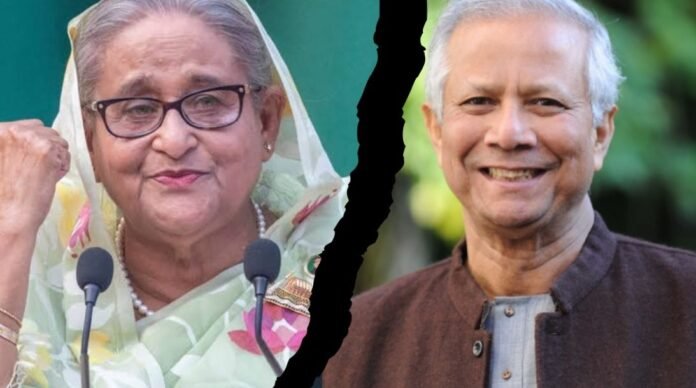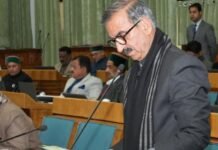In a landmark and highly controversial move, Bangladesh’s interim administration, led by Nobel Laureate Muhammad Yunus, has officially banned the Awami League, the country’s largest and historically dominant political party, pending the outcome of an ongoing tribunal investigating mass killings and alleged crimes against humanity linked to former Prime Minister Sheikh Hasina’s rule.
The ban, which includes both physical and online activities of the Awami League, comes at a politically volatile moment in Bangladesh’s history. It follows the violent suppression of nationwide anti-government protests in July 2024, which the United Nations estimates claimed the lives of up to 1,400 demonstrators. The brutality of that crackdown ultimately led to the ousting of Hasina’s administration, triggering international condemnation and a sweeping political transformation led by Yunus’s caretaker government.
Sheikh Hasina, once a towering figure in South Asian politics and a four-time prime minister, currently remains in self-imposed exile in India. Despite an active arrest warrant issued by Bangladeshi authorities, she has refused to return, claiming that the charges filed against her — which include crimes against humanity and violations of democratic norms — are politically motivated.
The announcement of the ban was made by Asif Nazrul, a senior legal advisor to the interim government, who stated that the decision was taken under the purview of the country’s Anti-Terrorism Act. He emphasized that this measure was vital to protecting Bangladesh’s sovereignty, maintaining national security, and ensuring the safety of tribunal witnesses and plaintiffs. In his words, halting the Awami League’s activities is essential to prevent further unrest and interference in the judicial process that is currently underway to investigate the July 2024 massacre.
The Yunus-led interim regime, which came to power with the stated goal of restoring constitutional order and democratic balance, has framed the decision as a legal necessity rather than a political maneuver. However, international observers are watching closely, as the move to ban an entire political party — especially one as entrenched in Bangladesh’s post-independence history as the Awami League — raises complex questions about political freedoms, justice, and the future shape of the country’s democratic landscape.
The Awami League, founded in 1949, was instrumental in leading Bangladesh’s liberation movement from Pakistan and has been at the helm of the country for much of its independent existence. The current developments have created a sharp divide among the populace, with supporters of the interim government viewing the ban as a long-overdue reckoning for authoritarian excesses, while critics argue that it sets a dangerous precedent for political suppression.
Meanwhile, India, which shares a deep and often strategically sensitive relationship with Bangladesh, is watching the unfolding events with concern. Hasina has long been seen as a key ally of New Delhi, especially in counterterrorism and regional connectivity initiatives. Her continued presence in India has already become a subject of geopolitical debate, and any further escalation could complicate bilateral ties.
As Bangladesh navigates this delicate transitional period, the world is likely to remain fixated on the outcomes of the trials, the integrity of the legal process, and the broader implications for democracy in South Asia. The Yunus government now faces the enormous task of balancing justice, political stability, and global scrutiny, all while attempting to redefine the country’s future in the absence of one of its most influential political forces.
#AwamiLeagueBan #SheikhHasina #BangladeshPolitics #MuhammadYunus #SouthAsiaNews
This is an auto web generated news web story.





